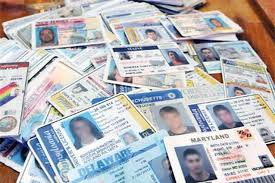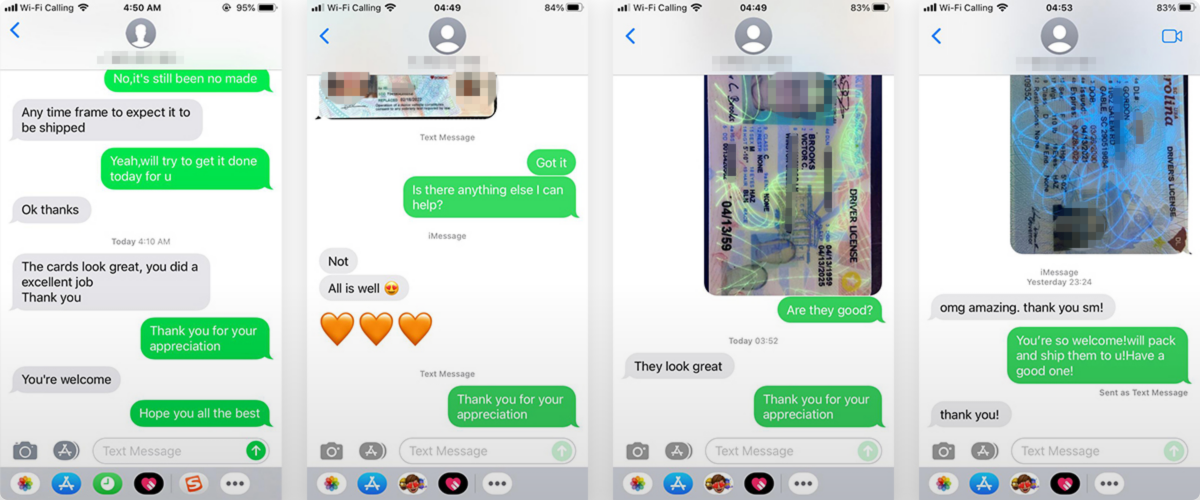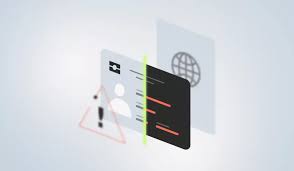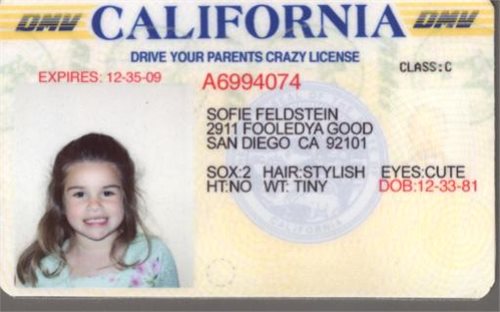fake ids in san diego
Outline of the Article: Fake IDs in San Diego
- H1: Introduction
- What Are Fake IDs?
- Why the Issue Matters
- H2: The Popularity of Fake IDs in San Diego
- The College and Party Scene
- Why San Diego Is a Hotspot
- H2: How Fake IDs Are Made
- H3: The Technology Behind Fake IDs
- H3: Online Marketplaces
- H3: Local Sources
- H2: The Risks of Using Fake IDs
- H3: Legal Consequences
- H3: Impact on Future Opportunities
- H3: Health and Safety Concerns
- H2: Law Enforcement and Fake IDs
- H3: How Authorities Detect Fake IDs
- H3: Legal Penalties for Using Fake IDs
- H3: Case Studies of Fake ID Arrests in San Diego
- H2: The Role of Social Media and the Internet
- H3: How Social Media Promotes Fake IDs
- H3: The Role of the Dark Web
- H3: Crackdown by Platforms and Law Enforcement
- H2: Ethical and Moral Implications
- H3: Personal Responsibility
- H3: The Wider Impact on Society
- H2: Alternatives to Using Fake IDs
- H3: Patience and Legal Adulthood
- H3: Other Forms of Entertainment
- H3: Safe and Legal Options
- H2: Conclusion
- Summary of Key Points
- Final Thoughts on the Issue
- H2: FAQs
- H3: What happens if you get caught with a fake ID in San Diego?
- H3: Are fake IDs easy to spot?
- H3: Can using a fake ID affect my future career?
- H3: What should I do if someone offers me a fake ID?
- H3: How can I educate my peers about the risks of fake IDs?
Fake IDs in San Diego
Introduction
Have you ever wondered what the fuss about fake IDs is all about? If you’re in San Diego, you’ve probably heard stories about them or even encountered one yourself. Fake IDs have become a significant issue, especially in cities with a vibrant nightlife and a large student population like San Diego. But why is this issue so prevalent here, and what are the real risks involved? Let's dive in and uncover the facts.
The Popularity of Fake IDs in San Diego
San Diego isn't just known for its beautiful beaches and sunny weather. It's also a city with a thriving college scene and an active nightlife, making it a prime location for the use of fake IDs. Whether it's underage students trying to get into clubs or access alcohol, the demand for fake IDs in San Diego is high.
The College and Party Scene
San Diego is home to several large universities, including San Diego State University and the University of California, San Diego. These institutions attract a diverse student body, many of whom are under the legal drinking age of 21. With the party culture that often accompanies college life, it's no surprise that many students turn to fake IDs to bypass age restrictions.
Why San Diego Is a Hotspot
The city's proximity to the Mexican border, combined with its robust tourism industry, makes it an attractive place for fake ID manufacturers and users alike. The nightlife here is bustling, with countless bars, clubs, and events catering to both locals and tourists. This creates a perfect storm where fake IDs can easily be put to use.
How Fake IDs Are Made
Ever wondered how fake IDs are made? The process is more sophisticated than you might think, involving advanced technology and networks of suppliers.
The Technology Behind Fake IDs
Today's fake IDs are often produced using high-quality printing technology, making them nearly indistinguishable from the real thing. Scanners, holograms, and even barcodes are replicated to create IDs that can pass casual inspection and even some electronic checks.
Online Marketplaces
The internet has made acquiring a fake ID easier than ever. Numerous online marketplaces, often operating on the dark web, offer custom IDs for a price. These sites often require cryptocurrency for transactions, adding a layer of anonymity for both the buyer and the seller.
Local Sources
In addition to online options, there are also local suppliers who produce fake IDs in San Diego. These can range from individuals using home equipment to more organized operations that sell to large numbers of people. These local sources often rely on word-of-mouth or connections within social circles to find customers.
The Risks of Using Fake IDs
While the allure of a fake ID might seem strong, the risks associated with using one are significant.
Legal Consequences
Getting caught with a fake ID in San Diego can lead to serious legal trouble. California law treats the use of a fake ID as a misdemeanor, which can result in fines, community service, or even jail time. In some cases, a conviction might also lead to a criminal record, which can have long-lasting effects.
Impact on Future Opportunities
A brush with the law over a fake ID can have far-reaching consequences beyond immediate legal penalties. A criminal record can affect future job prospects, college applications, and even housing opportunities. Employers and educational institutions often conduct background checks, and a misdemeanor related to a fake ID could be a red flag.
Health and Safety Concerns
Using a fake ID also poses risks to your health and safety. Being in environments that are legally restricted to those over 21 means you're exposing yourself to situations you may not be prepared for, such as excessive drinking or dangerous behavior. Moreover, some venues might have stricter security measures that could lead to confrontation or harm if you're caught.
Law Enforcement and Fake IDs
Law enforcement in San Diego takes the issue of fake IDs very seriously. But how exactly do they tackle this problem?
How Authorities Detect Fake IDs
San Diego's law enforcement agencies are well-equipped to detect fake IDs. Officers and bouncers at clubs often undergo training to recognize common signs of a fake ID, such as incorrect fonts, misspelled words, or unusual hologram patterns. Some venues even use electronic scanners that can read and verify the data on an ID’s magnetic stripe or barcode.
Legal Penalties for Using Fake IDs
The legal penalties for using a fake ID in San Diego can be severe. Besides fines and community service, you could also face probation or mandatory educational programs about alcohol and drug abuse. Repeated offenses could lead to harsher consequences, including jail time.
Case Studies of Fake ID Arrests in San Diego
There have been several high-profile cases in San Diego where individuals were arrested for using or producing fake IDs. These cases often serve as a reminder of the risks involved and the seriousness with which law enforcement treats these offenses.
The Role of Social Media and the Internet
Social media and the internet have played a significant role in the proliferation of fake IDs. Platforms like Instagram and Snapchat are often used to advertise fake ID services, targeting younger audiences who are looking for quick and easy access.
How Social Media Promotes Fake IDs
Many fake ID providers use social media to market their services, posting pictures of the IDs they produce and providing contact information for potential buyers. This makes it incredibly easy for underage individuals to find and purchase a fake ID.
The Role of the Dark Web
The dark web is another avenue through which fake IDs are sold. These online marketplaces offer a degree of anonymity, making it difficult for law enforcement to track down buyers and sellers. However, recent crackdowns have led to the shutdown of several major fake ID operations on the dark web.
Crackdown by Platforms and Law Enforcement
In response to the growing issue, social media platforms have started to crack down on accounts that promote fake IDs. Law enforcement agencies also collaborate with these platforms to track and shut down illegal operations. Despite these efforts, the problem persists, indicating the need for ongoing vigilance.
Ethical and Moral Implications
While the legal and safety risks of using a fake ID are clear, there are also ethical and moral considerations to keep in mind.
Personal Responsibility
Using a fake ID is a form of deception, and it’s important to consider the broader implications of such actions. By using a fake ID, you're not just breaking the law; you're also undermining the trust that society places in individuals to follow rules and regulations.
The Wider Impact on Society
The use of fake IDs can have a ripple effect on society. For example, venues that are caught serving minors due to fake IDs can face severe penalties, which could lead to their closure. This not only impacts the business owners but also the employees who rely on these jobs.
Alternatives to Using Fake IDs
If you're under 21 and feeling left out, it's important to remember that there are alternatives to using a fake ID.
Patience and Legal Adulthood
While it might be frustrating to wait until you're 21, it's important to remember that the legal drinking age is in place for a reason. Patience is key, and turning 21 will come sooner than you think.
Other Forms of Entertainment
San Diego offers plenty of entertainment options that don't require a fake ID. From outdoor activities like hiking and surfing to cultural events and live music, there’s no shortage of things to do that are both fun and legal.
Safe and Legal Options
If you’re looking for social opportunities, consider attending events that are open to all ages or hosting gatherings with friends in a safe environment. This way, you can still enjoy your time without risking the consequences that come with using a fake ID.
Conclusion
Fake IDs might seem like a ticket to freedom for underage individuals in San Diego, but the risks far outweigh the benefits. From legal trouble to personal safety, there are many reasons to avoid using a fake ID. Instead, consider the alternatives and make choices that will keep you on the right side of the law.
FAQs
What happens if you get caught with a fake ID in San Diego?
If caught with a fake ID in San Diego, you could face legal consequences such as fines, community service, and even a criminal record. In some cases, you might also have to attend educational programs.
Are fake IDs easy to spot?
While some fake IDs are very sophisticated, trained professionals and electronic scanners can often detect them. Small errors in design, font, or holograms can be giveaways.
Can using a fake ID affect my future career?
Yes, having a misdemeanor on your record for using a fake ID can impact your future job prospects, as many employers conduct background checks.
What should I do if someone offers me a fake ID?
It's best to decline and avoid the legal risks associated with using a fake ID. Instead, consider alternative ways to enjoy your time that don’t involve breaking the law.
How can I educate my peers about the risks of fake IDs?
Share information about the legal, ethical, and safety risks of using fake IDs. Encourage open discussions and promote safe, legal alternatives for entertainment and socializing.
 scannable Fake Missouri DL
scannable Fake Missouri DL
 scannable Fake RhodeIsland DL
scannable Fake RhodeIsland DL
 scannable Fake Ohio DL
scannable Fake Ohio DL
 scannable Fake New York DL
scannable Fake New York DL
